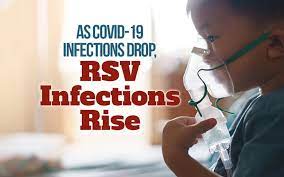Blood pressure in the elderly: higher target values sometimes beneficial
Millions of people suffer from high blood pressure (hypertension). Those affected are usually advised to fight their condition by leading a healthier lifestyle, getting enough exercise, and eating a balanced diet.

In addition, medication is often used. But how far the blood pressure values should be lowered is not the same for everyone. Researchers are now reporting that higher target values can be advantageous for certain older people.
In a study, researchers from the University of Ulm and the Agaplesion Bethesda Klinik Ulm examined the mortality rate of elderly residents in connection with systolic blood pressure and the factor “frailty”. They found that the risk of death in old age due to higher systolic blood pressure differs greatly depending on the individual fitness of the person. The research was published in Hypertension, a cardiovascular journal published by the American Heart Association.
deterioration in cognitive abilities
As explained in a statement from the University of Ulm, the risk of high blood pressure (hypertension) increases with age because, among other things, the vessels lose their elasticity. High blood pressure also increases the risk of cardiovascular diseases such as stroke or heart attack.
Therefore, hypertension is one of the four big risk factors. Around three-quarters of all 75-year-olds suffer from it. Therefore, the general recommendation is to lower the systolic blood pressure to below 140 mmHg, mostly with medication.
But a sharp drop in blood pressure in old age can be related to negative events such as falls. This is due to increasing autonomic dysregulation. This means that the body’s control system is out of whack. In conjunction with disturbances in venous blood flow, this can lead to a long-lasting drop in blood pressure after getting up.
At the same time, however, there are indications of deterioration in cognitive abilities when the systolic blood pressure in the elderly is reduced to well below 130 mmHg. Other side effects of antihypertensive drugs such as a dry cough, allergies, and digestive problems are also known.
Use is discussed controversially
“Nowadays, the benefit of intensive treatment of arterial hypertension, i.e. high blood pressure in old age, is discussed controversially. There are still no uniform recommendations in the existing guidelines. With our investigation, we want to make a contribution and improve the data situation,” explains PD Dr. Dhayana Dallmeier, head of the research department at the Agaplesion Bethesda Klinik Ulm.
For this reason, the scientist and the team led by first author Kaj-Marko Kremer related mortality in the elderly to blood pressure and frailty. In the study, the researchers used the data from more than 1,100 participants (mean age 73.9 years, 41.6 percent women) from the active study in Ulm, which primarily records physical activity in people over 65 years of age.
The researchers were able to determine that frailty has a strong influence on the risk of death. For “fitter” people, the lowest risk of death was at a systolic blood pressure of 130 mmHg, as also stated in the current guidelines.
The risk of death decreased with higher blood pressure
The study also showed that in the case of very frail older people, the risk of death even tended to decrease with higher blood pressure. Frail people with a blood pressure of 160 mmHg or higher were at the lowest risk.
“As we can observe, aging varies greatly from person to person. In addition to the fit and sporty over 80-year-olds, there are frail and less resilient 70-year-olds. Our study confirms how important this fact can be in old age, for example with regard to the application of differentiated treatment approaches,” says first author Kaj-Marko Kremer.
The authors advise that physical and cognitive fitness in old age should be taken into account in the patient-specific treatment of arterial hypertension and incorporated into the development of new guidelines.









